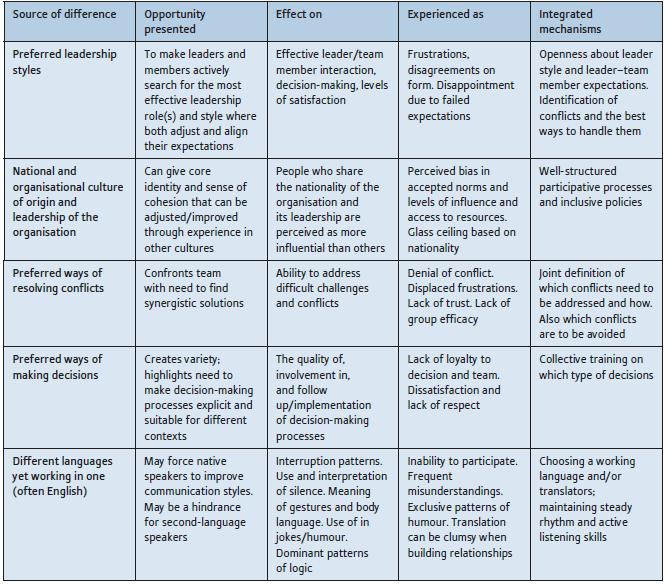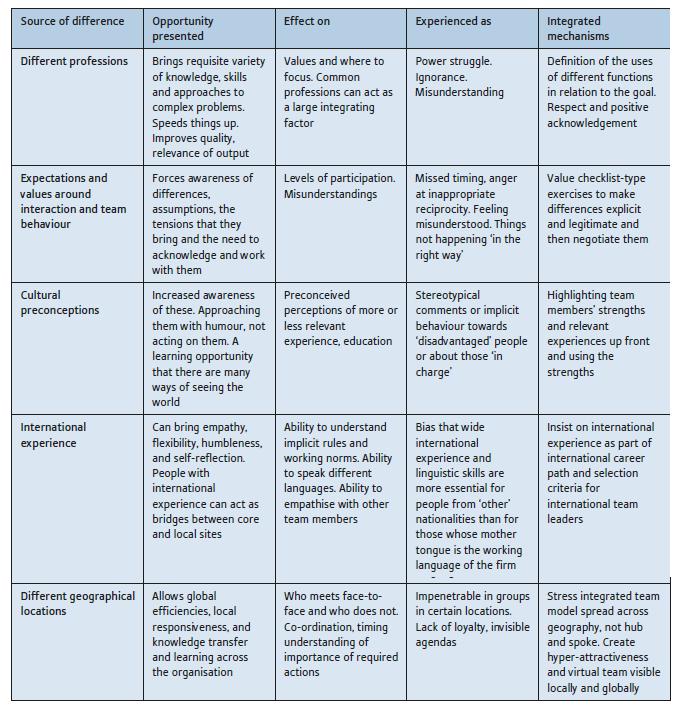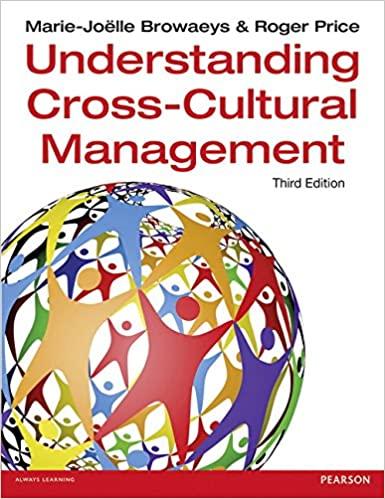The Indian owners of an agricultural machine company, with a growing number of subsidiaries around the world,
Question:
The Indian owners of an agricultural machine company, with a growing number of subsidiaries around the world, were determined to improve the productivity of their operations in Europe. To this end, they sent a managing director (MD) from its headquarters in Bombay to head its recently acquired company in Italy and to spearhead changes in the running of the European operations. Before his departure, the MD had persuaded the owners that a cross-subsidiary team of key managers needed to be created which, under his leadership, would harmonise the decisions made by the two European companies they owned (one in Italy and another in Lithuania). This team would eventually serve as a basis for integrating decision-making across all of the company’s operations in Europe and Asia.
The initial team was to consist of managers from the technical, production, quality control and client relation departments of the Italian and Lithuanian subsidiaries. The team would have its first meeting in Rome, with later meetings in Vilnius and Bombay. The company’s infrastructure would be updated to allow the team to meet virtually between their regular face-to-face meetings.
The MD from Bombay regarded his first meeting with the team-members as an opportunity for them to get to know each other and to share information about day-to-day operations. Once he had explained his aims to his Italian management team, he left them to organise the meeting.
This get-together was conducted in English, which was the operating language of the concern. After the MD had explained his plans and the importance of the team in improving the company’s fortunes, he asked the individual members to take it in turns to introduce themselves. The Lithuanian members each talked very briefly about their positions and responsibilities. The Italians, however, found it difficult to restrict themselves to introductions and started talking in detail and with great eagerness about all the machinery they were producing. There was only an outline agenda for the meeting, so the introductions quickly became a disorganised discussion dominated by the Italians. They talked about the manufacturing process (‘we were the leaders in automated production ten years ago, but now we are a long way behind our competitors’), and complained vociferously about the working conditions (‘our main priority must be to renovate the factory.
We cannot go on like this!’). They deplored the motivation of the employees (‘absenteeism is a terrible burden . . . but you people must have the same problem in your country’), and speculated about future products (‘we wonder whether the company is going to continue with tractor production’).
Unable to get a word in edgeways, one or two Lithuanians in the team now and again asked the MD if they could add to the discussion, but their requests were frequently drowned out by the loud comments of the Italian participants. All the Lithuanians really managed to do was to ask occasional questions about certain products that they were also making.
Afterwards, when the team-members were drinking an aperitif before dinner, the MD wandered among the rather quiet Lithuanians on one side of the room, and asked them how they felt the meeting went. They were rather reluctant to respond at first, but eventually volunteered a few comments that showed their disappointment. One of them had this to say: ‘We didn’t really get the information we needed. We didn’t find out enough about what is going on in your company – certainly not enough to write a decent report. Our management will wonder what we actually achieved here.’ The MD then went over to the Italians on the other side of the room who were still continuing the discussion they had had during the meeting. When he asked one manager for his impression of the meeting, he was deluged with comments by everyone standing nearby. The reaction of one Italian participant reflected the general feelings of his fellow-countrymen: ‘I don’t understand why the visitors are so cold; they really didn’t want to know anything about us and told us nothing about themselves. It should have gone much better – after all we speak the same technical language!’
Questions
1. Using the information given in the case study, as well as Table 16.2 , make an analysis of the situation.
Table 16.2


Use the following questions as a guideline:
● What are the ‘sources of differences’ in this case?
● Which responses – appropriate or inappropriate – to the sources of these differences were used during the preparation for the meeting as well as the meeting itself?
2. How could the first meeting of the team have been more successful? Consider the suggestions below and add any ideas you may have.
● The new managing director of the Italian subsidiary from Bombay could have asked the Italian participants to organise a meeting some days before the one planned with their Lithuanian counterparts. This internal meeting could have functioned as a rehearsal for the ‘real’ meeting, with the managing director (as chairman) allowing the participants to speak as they wanted and not organising the discussion in any way.
● Those who were to attend the first meeting of the team could have been required to get to know each other beforehand, either through some kind of social/team-building event, or through telephone (conference) calls to each other, or even through video conferences.
Step by Step Answer:

Understanding Cross Cultural Management
ISBN: 9781292015897
3rd Edition
Authors: Marie Joelle Browaeys, Roger Price





